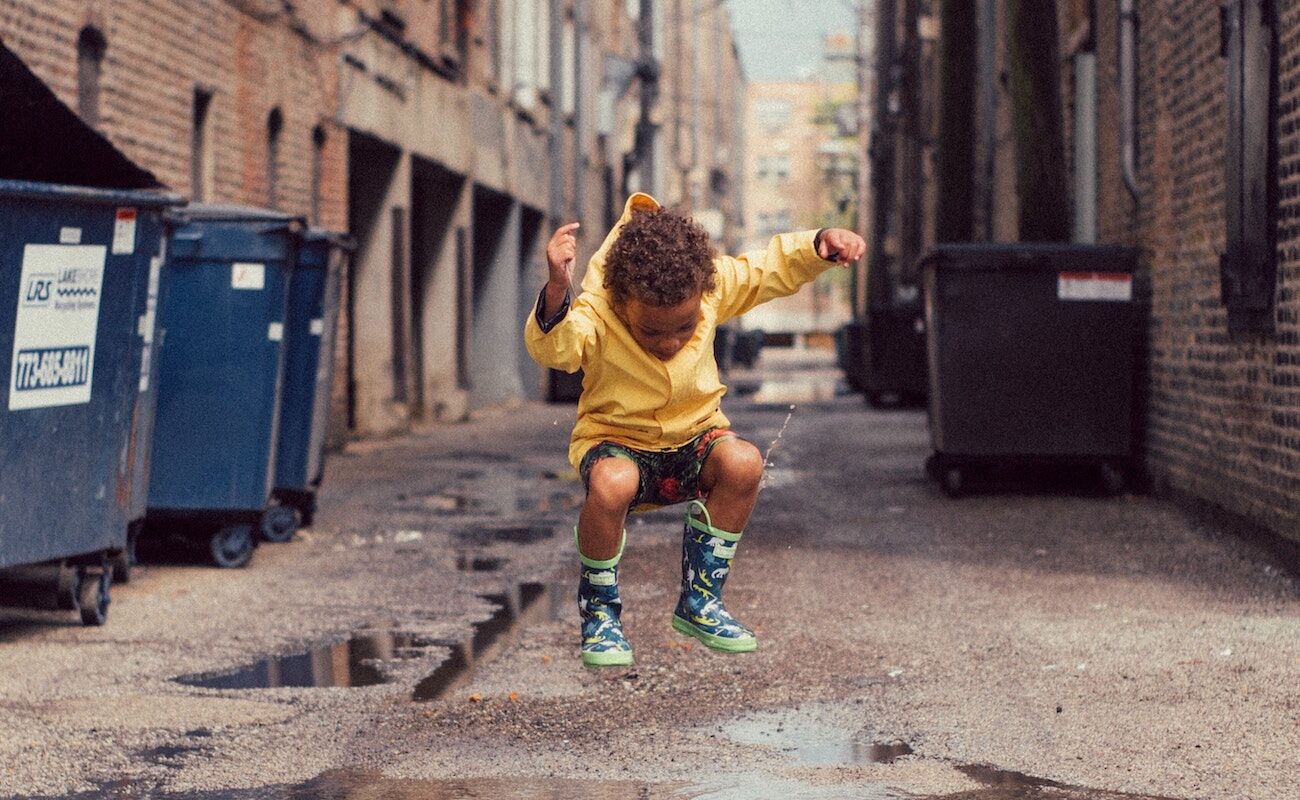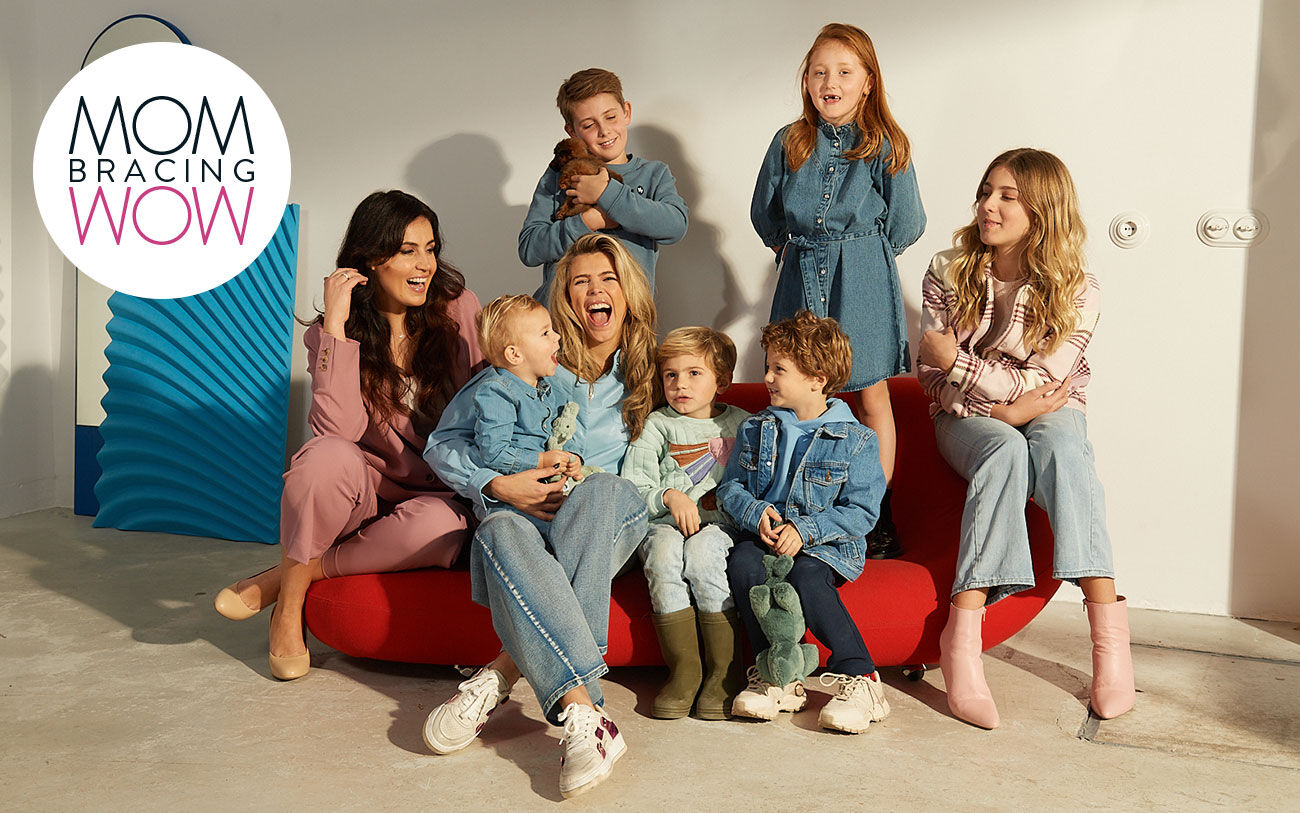Parenting tips: We can learn these 7 things from parents from other countries
There are so many different cultures in the world with so many different customs. We like to be inspired in the field of food, interior and clothing. But what about education? How are parents in other countries doing?
1. Fresh outdoor air is very important
It is a bit of a shock when you go to Denmark for the first time. Everywhere you see ‘abandoned’ prams with children still in them. In the cafes in Copenhagen it is even full of prams, while the parents are inside, drinking a nice hot cup of coffee. Danes find fresh air very important. Even when temperatures drop below freezing. Small children therefore wear a lot of wool and babies are extra wrapped up in warm blankets. This way they can take a nap outside.
The prams in Denmark are also a bit bigger. Where we usually exchange the carrycot for the seat from the age of 6 months, Danish children spend much longer in those large carrycots. Everything for a nice fresh nap in the open air.
2. The adult world and the child world do not have to be separate worlds
Michaeleen Doucleff is an American mother and author of the book ‘Hunt, Gather and Raise’. She traveled all over the world to learn about parenting from the world’s oldest cultures. She learned from the Mayans in Mexico that you should also take children into your world, instead of the other way around.
She explains that in Western families, parents often plan all kinds of child-oriented activities for the kids. “They think their purpose in the family is to organize and participate in these other activities. But that doesn’t have to be the case. When you invite a child into your world, they want to be part of your team. They want to help clean up or make the bed. If they are part of your world and are with you all the time when you do these things, they see that as their role to help the family.” Of course, one does not exclude the other, she explains. “Just be careful not to overcrowd your child’s schedule and also leave free moments to play on your own and take them into your world.”
3. Raised by siblings
Where we are only too happy to use grandfathers, grandmothers, nieces, nephews or neighbor children as babysitters from time to time, this is perfectly normal for the Maori in Polynesia. In fact, the upbringing is largely in the hands of the brothers and sisters. Even when they are very young themselves. The idea behind it is that older siblings learn at a young age to take care of themselves and others. Moreover, they also develop a great sense of responsibility. They also learn that a strong family bond is very important.
Also read: ‘It takes a village: why a ‘village’ to co-educators is not so bad after all’
4. Eating is an important part of the day
Picking up the kids from daycare from work, a quick trip to the super to get some banging and they actually have to go there and they actually have to go to bed already… the cozy dinner together sometimes falls short faster than you think. We quickly cobble something together, shove it in and continue with the order of the day. Or even worse: we eat with the plate on our lap in front of the TV. So easy, but actually so uncomfortable.
In France they do it very differently. Eating together is an important part of the day and time is made available for that. The food is tasty and healthy (and no: not haute cuisine every day). Sometimes they spend hours at the table with the children. And guess what: it works. The children sit at the table for hours and eat what is served. In most French restaurants you don’t even have children’s menus. Snails, eggplant, seafood, blue cheeses, everything.
5. Bedtime: What is it?
In Argentina, there is no such thing as “go to bed after Sesame Street.” No, there is no fixed bedtime for children. Parents don’t go home early
There is no fixed bedtime for children in Argentina. This allows parents to enjoy convivial dinners that can last until late in the evening without rushing. While the parents enjoy a delicious Argentinian wine, the children can develop their social skills.
6. No hat = no going out
Do you always faithfully lubricate your children? The Dutch are known for being a bit lax when it comes to applying sun cream to the children. We are therefore nothing compared to the Australian parents. They deal with a hole in the ozone layer and extremely hot summers. The motto there is: no hat, no play. This is also an important rule in schools. Children must wear a sun hat to protect them from the scorching sun.
7. 50/50 parenting
An emancipated household is becoming increasingly important. Yet we often unconsciously cling to a traditional division of roles. The mother picks up the children from school, arranges all household affairs, is the first to be called by the school if a child is ill, and so on. Although we are also increasingly trying to do things 50/50.
This is quite normal for the Aka tribe in Africa. The aka dads are the world’s most involved dads. They take the little ones on the road, wear them close to their body for an average of two hours a day and simply take the kids to the local drink. How cozy is that.
Want to get even more inspiration from other cultures? Then read the book ‘Hunt, Gather, Raise’ by Michaeleen Doucleff or ‘How Eskimos Keep Their Babies Warm: And Other Adventures in Parenting’ by Mei-Ling Hopgood. These books are full of good parenting tips from other cultures.



